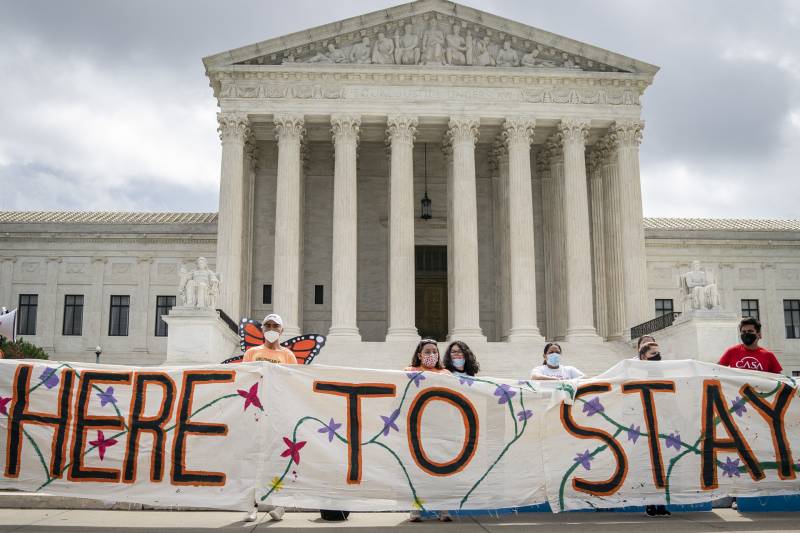That’s because the 5-4 opinion, written by Chief Justice John Roberts, didn’t defend DACA itself, it merely said the government had failed to follow proper procedures in ending it, suggesting that the Department of Homeland Security could try again.
For now, the 650,000 people with DACA — 185,000 of them in California — retain their protection and work authorization. It also appears that the government must again accept first-time applications, and more than 60,000 undocumented teenagers who were brought to the U.S. as children can now apply because they’ve reached the application age of 15.
Immigrant advocates in a video press conference Thursday said they plan to push for legislation that would offer permanent protection for all 11 million undocumented immigrants in the U.S. — something that will require action by the U.S. Congress.
The fact that the DACA program was first created by President Barack Obama in 2012 is a testament to the persistent and savvy activism of Dreamers, young undocumented immigrants who’ve spent most of their lives in this country, said José Muñoz, communications manager for United We Dream.
“It was undocumented young people who were courageous and fearless, pushing Obama to act,” said Muñoz. A DACA recipient from Mexico, he has lived in the U.S. since he was a 3-month-old infant.
Muñoz said the massive, spontaneous Black Lives Matter protests of recent weeks are a new source of inspiration to immigrant advocates, who see common ground in the search for racial justice.
“There is a lot of fire in this moment,” he said. “We’re seeing people taking to the streets … led by Black people who are demanding a defunding of the police. We’re seeing the spirit of people coming together saying enough is enough.”
At the Central American Resource Center in San Francisco, Director Lariza Dugan-Cuadra said her primary concern is to explain the Supreme Court ruling to the roughly 400 DACA recipients the nonprofit assists, and ensure that they take steps to renew their DACA status.
“First we’re all taking a deep breath,” said Dugan-Cuadra. “It’s just nice to have good news.”
Next, she said, her group is building alliances to advocate for a path to citizenship for Dreamers and other undocumented immigrants.
The first time the DREAM Act was introduced in Congress was 2001. It had bipartisan support then. And today, large majorities of Americans — including 69% of Trump voters in a recent Politico poll — say Dreamers should be allowed to stay in the U.S. legally.
Last year, the House of Representatives passed the latest version known as the American Dream and Promise Act. But the Republican-controlled Senate hasn’t taken it up.
San Jose Congresswoman Zoe Lofgren, a Democrat who supports legalization, said that’s unlikely to happen unless Democrats win the Senate in November.
“What happens in the upcoming election is going to be very important for the fate of these young people,” Lofgren said. “It’s so clear: The difference on this issue between the two parties.”
Though Dreamers themselves can’t vote, they can encourage others to do so. Muñoz said that three of his siblings are U.S. citizens who plan to vote in November. By his estimate, the nation’s 650,000 DACA recipients belong to families with 2.5 million voting-age citizens.
“We’re going to continue to see folks taking to the streets,” he said. “And for us there will be a big push to do engagement with voters. This is a consequential election.”
KQED reporter Julie Small contributed to this report.

